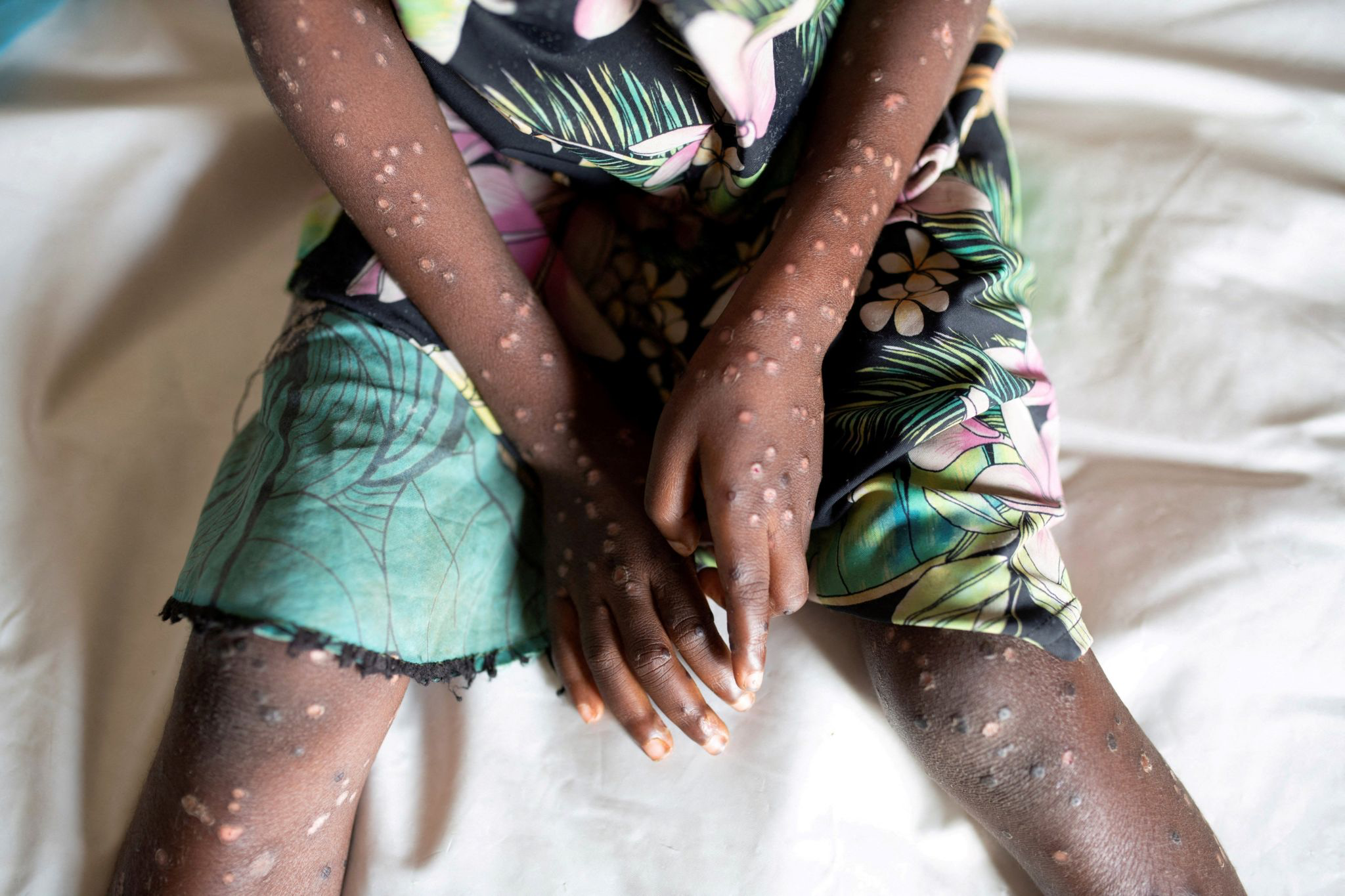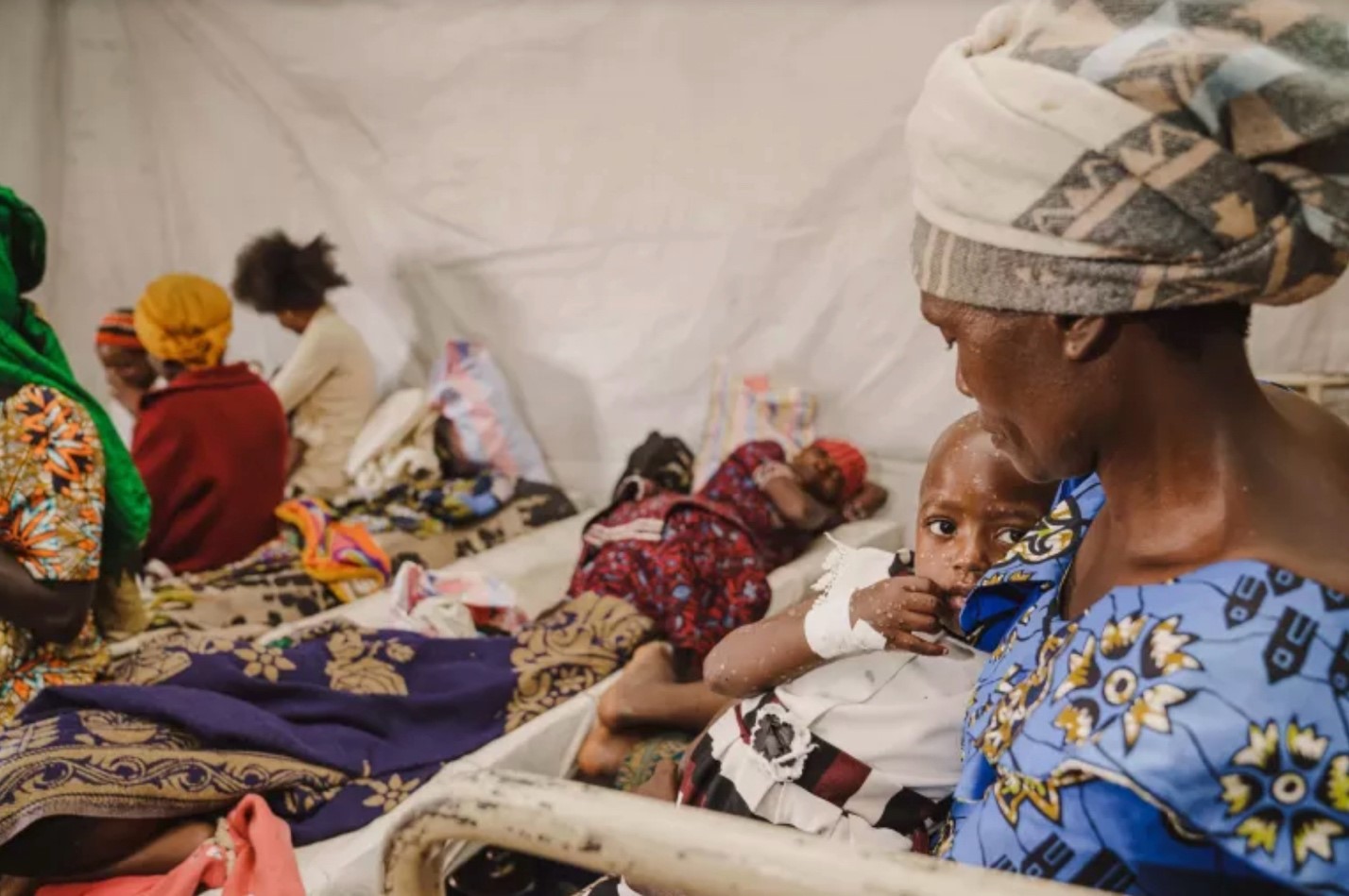 A child with typical mpox bumps in outbreak in the Democractic Republic of Congo Photo: Reuters
A child with typical mpox bumps in outbreak in the Democractic Republic of Congo Photo: Reuters
Countries across Africa are on guard as a more severe strain of mpox, formerly known as monkeypox, has killed 1300 people in the Democractic Republic of Congo and sickened more than 100,000. The deadly outbreak of the strain which can kill one in every ten people infected, prompted the Africa Centres for Disease Control and Prevention (Africa CDC) and World Health Organization (WHO) to declare a global health emergency.
By Gloria Wleh with New Narratives
Mpox has been present in countries around the world for decades. An outbreak of the less deadly strain known as Clade 2 infected people across the world in 2022-2023. The National Public Health Institute of Liberia confirmed six people have been sickened with mpox in Liberia since August. More suspected cases are being monitored. Patients have been in Lofa, Sinoe and River Gee counties.
“Out of the six cases that were confirmed, two have recovered, two are still in isolation and the other two are still being treated on home based care,” said Dr. Dougbeh Nyan, Liberia Public Health Institute Director.
The government has not yet confirmed that it is the more severe strain known as Clade 1. The Clade 2 strain has been present in Liberia previously and had a lower death rate of one to three percent of people infected. Given Liberia’s weak health system and previous experiences with the 2014 Ebola outbreak, the government says it is taking this threat very seriously.
Dr Nyan has set aside $US500,000 to $US1.5 million in the recast budget to fight the disease. The Health Institute has launched the National Incident Management System with a quarantine and contact tracing regime – similar to that used for Ebola.
Dr. Nyan said samples of the virus have been sent to Nigeria and the United States to be tested. Results are expected later this week. Given the low incidence so far, medical staff are hopeful the Clade 1 strain has not yet arrived. But they say it’s likely only a matter of time. They warned Liberians to take it seriously and protect themselves.
“We should not overlook this sickness to say this sickness is not real,” said Zeeman Kababeh, an official on at Yeala Clinic in Lofa County, by phone. “It was found in Yeala, where I am sitting right now.”
 A mother holds her child suffering from Mpox at the Mpox isolation unit of the UNICEF in the DRC
A mother holds her child suffering from Mpox at the Mpox isolation unit of the UNICEF in the DRC
The symptoms of the disease are a skin rash which can last 2-4 weeks, headache, fever, back pain, muscles ache and low energy. Mpox can be transmitted through close contact with someone who has mpox, with contaminated materials, or with infected animals. During pregnancy, the virus may be passed to the fetus, or to the newborn during or after birth.
“Come quickly to the nearest health facility when you notice any of the symptoms of mpox,” Dr. Nyan said. “When you see somebody with crocro (rashes) you should immediately know that maybe this person has mpox. You should not shake their hands, rub your body on them or sit down near them.”
Mpox is treated with supportive care for symptoms such as pain and fever, with close attention to nutrition, hydration, skin care, prevention of secondary infections and treatment of co-infections, including HIV where present.
Kebbeh Flomo, whose 2-year-old son has recovered from mpox, said lots of rashes came on her son’s entire body and he was in constant pain throughout his illness.
“The bumps were plenty on my son,” Madam Kebbeh said. “We were taken to the clinic and we spent 21 days there before they sent us back home.”
There is a vaccine to protect against mpox but it is in short global supply. The first available doses have been sent to places with the highest numbers. As with Ebola and Covid, Africa has been hurt by its reliance on vaccine makers in rich countries. According to the Africa CDC, only 1 percent of vaccines administered in Africa are produced locally.
Until Liberia has confirmed an outbreak it will not be at the front of the vaccine line.
“Right now countries with higher numbers of cases are the ones that are getting the vaccines,” Dr. Nyan said. “Liberia will get its own. We have already put in our request for the vaccine. We are waiting for the WHO and Africa CDC to send us our vaccines.”
This story was a collaboration with New Narratives. Funding was provided by the Swedish embassy in Liberia. The donor had no say in the story’s content.

